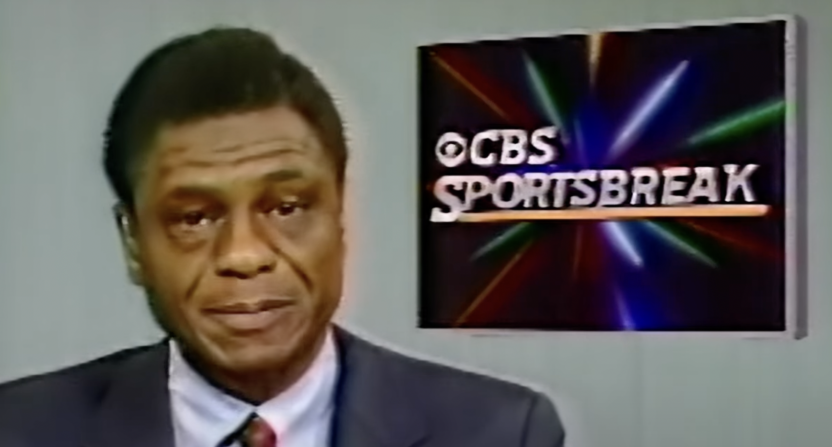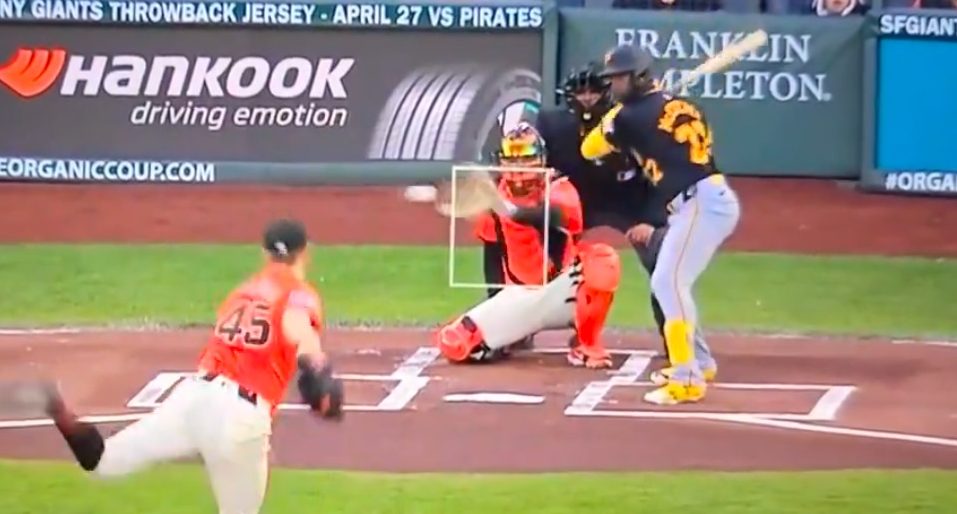Irv Cross was a vital NFL figure on many fronts. In a nine-year playing career as a defensive back from 1961-1969 with the Philadelphia Eagles and Los Angeles Rams, Cross was twice named to the Pro Bowl, and he worked as a local radio and TV broadcaster while playing, becoming the first Black sportscaster in Philadelphia in the process.
After his playing career ended, Cross joined CBS as an analyst and commentator in 1971 (becoming the first Black analyst on national sports television) and worked there through 1994. That included his time on standard-setting pregame show The NFL Today from 1975-89. But Cross, who passed away at 78 in 2021, is now in the news for a different reason; he’s the lead figure discussed in a detailed longform Washington Post investigative piece from Will Hobson on the failures of the NFL’s 2015-finalized concussion settlement. Here’s how that piece opens:
When Irv Cross applied for money from the NFL concussion settlement in 2018, his dementia was obvious to anyone who spent more than a few minutes with him.
At 78, the former NFL player and trailblazing sports broadcaster struggled to speak coherently, forgot to change his clothes and suffered from urinary incontinence, his wife told doctors. Cross had been diagnosed with dementia by another doctor months before he was evaluated by two NFL settlement doctors, his medical records show.
But the settlement doctors concluded they couldn’t diagnose Cross with anything, their reports state. While Cross’s symptoms met the standard definition for dementia in American medicine, they agreed, his test scores didn’t meet the NFL settlement’s definition.
“He does not appear to qualify for any diagnosable conditions through the NFL program,” a settlement neurologist wrote. Cross died three years later, of what his doctors thought was just Alzheimer’s disease. An autopsy found he also had suffered from severe chronic traumatic encephalopathy (CTE), a brain disease linked to football.
The full piece is well worth a read, laying out how Cross’ case is far from atypical here. What’s particularly interesting is the dive into how the settlement’s definition of dementia “requires more impairment than the standard definition used in the United States,” which has led to the administrative law firm overseeing the settlement overturning more than 70 findings by board-certified doctors that patients had dementia. There’s significant discussion of that from many experts, and debates between top players’ lawyer Christopher Seeger and many players on whether the players were correctly informed of the “notch above” dementia diagnosis required for a payout here (which NFL lawyer Brad Karp disputes is more difficult than a standard dementia diagnosis).
Many other problematic aspects of this concussion settlement evaluation are also explored in depth by Hobson, from the delays for players in getting medical evaluations for dementia (more than 15 months, on average) through the past use of “race-norming” (which was only removed from the settlement in 2021 after detailed reporting on it from Hobson, The Post, and others) through the settlement denying nearly 1,100 dementia claims while approving only around 900 through the August change in the company managing the league network of doctors (which came after some Post questions on it). And there are many notable examples of players denied claims here beyond Cross.
But the discussion of Cross stands out here given his prominence. It was huge news last year when Boston University researchers announced that an autopsy had revealed that Cross had stage 4 CTE. With Cross’ profile as a player, and especially as a sportscaster, he was one of the biggest names so far to be revealed with confirmed CTE. And the Post discussion here of the rejection of Cross’ claim shows not only how many other players experienced similar challenges, but illustrates how this vaunted NFL settlement did nothing for of one of the league’s most prominent faces for decades, and one who was later confirmed to have severe CTE. And the story raises major questions about how many other players’ claims are being overlooked the way Cross’ claim was.







